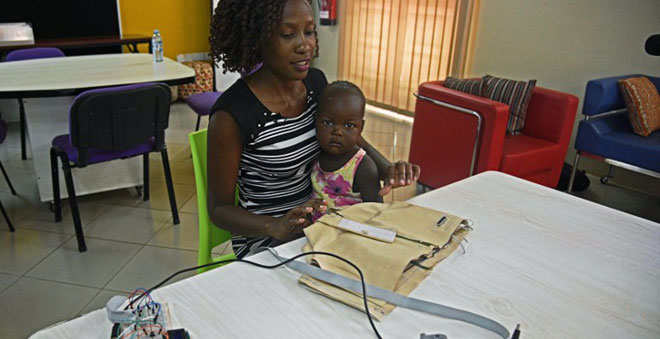
Kampala, Uganda | Ronald Musoke| As the world marks World Pneumonia Day on Nov. 12, Malaria Consortium, an international public health non-profit is urging the Ugandan government to scale up life-saving community-based interventions to further bring down infant mortality and ensure child survival in the country.
According to the NGO, Pneumonia is a preventable and treatable disease which kills 1.4 million children globally each year and is one of the biggest killers of children under five in Uganda.
It is for this reason that Malaria Consortium is working in partnership with the Ugandan government in an effort to reduce preventable deaths, as part of the government’s child survival strategy through scaling up the integrated community case management (ICCM) programme, whose main goal is to diagnose and treat children at community level to achieve maximum impact.
The ICCM programme trains and supports volunteer community health workers, called Village
Health Team members, to conduct health promotion activities, diagnose and treat diarrhoea,
Pneumonia and malaria as well as recognize danger signs in newborns and under-fives and refer to nearest health facility.
This strategy is expected to reduce childhood deaths from these diseases by 65%, bringing diagnosis and treatment closer to home, where, in the past, poverty and distance limited access to quality health services.
“In Uganda, 40 percent of all deaths in children under five are caused by the three most common killers, namely diarrhoea, pneumonia and malaria,” said Dr. Godfrey Magumba, the Malaria Consortium Uganda Country Director in a statement.
“Pneumonia alone is estimated to be responsible for 24,000 deaths in young children each year. We cannot even begin to think about reducing child mortality by two thirds and meeting the Millennium Development Goals if we do not all pay serious attention to all three including pneumonia.”
Dr Magumba further noted that the national and international focus needs to focus more on strategies that work, getting timely and appropriate pneumonia prevention and treatment to the most remote communities.
Pneumonia can show a wide range of symptoms similar to those of malaria and can often occur at the same time as malaria, making it crucial to check for both diseases and treat accordingly.
Although Pneumonia can be treated with antibiotics, only 30% of children suffering from the disease receive the correct medicine.
According to the UN’s World Health Organization, the majority of cases of childhood Pneumonia can be treated effectively within the community, without further need to visit a health facility or hospital.
The community health volunteers have the capacity to reach children during the most critical time, reducing the negative effect of delaying diagnosis and treatment.
“We recognize the positive role of the Village Health Teams in managing Pneumonia cases, and we support them with new tools and the right supervision to keep them motivated,” said Dr. Karin Källander, the coordinator of a project that is researching effective ways to support the scaling up of quality ICCM in Uganda.
“At Malaria Consortium, we know that this approach can be more cost-effective in addressing pneumonia, diarrhoea and malaria together.”
Malaria Consortium is working in 40 districts within Uganda implementing interventions and conducting continuous operational research.
 The Independent Uganda: You get the Truth we Pay the Price
The Independent Uganda: You get the Truth we Pay the Price



